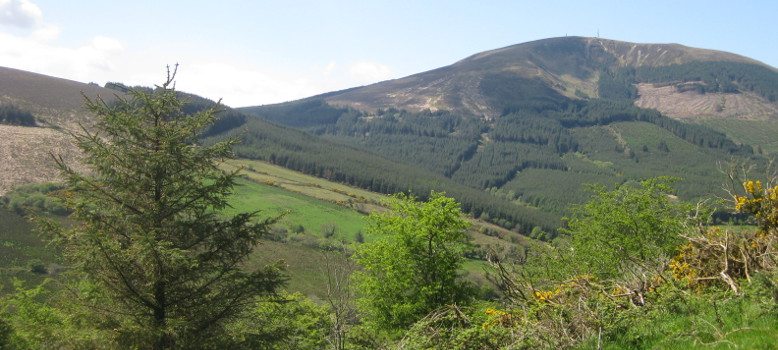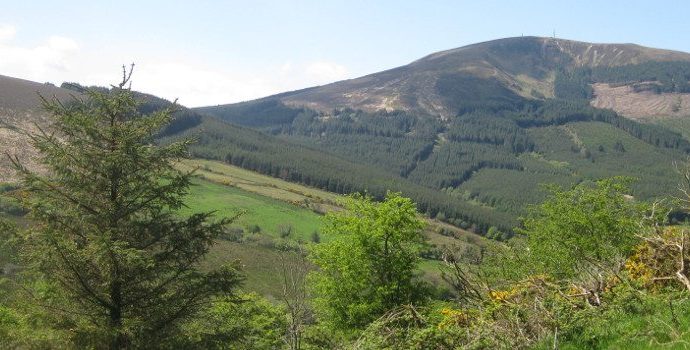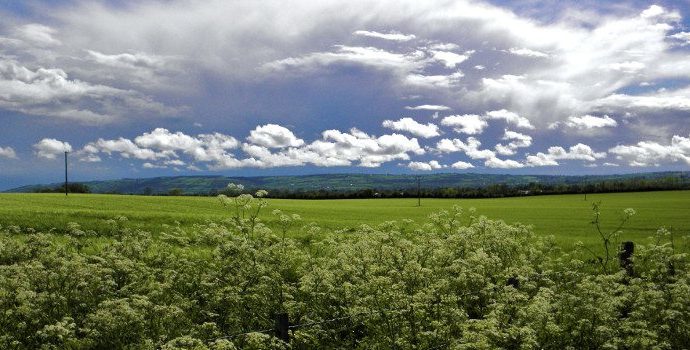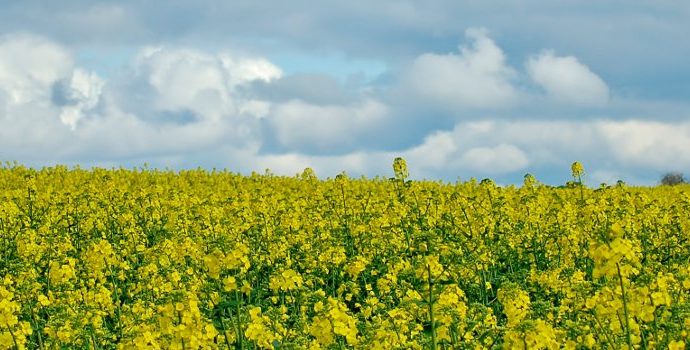Environment Reports
Environment & Rural Affairs Council Report November 2023

- Activity since last National Council
- As part of IFA’s campaign to maintain the Nitrates Derogation a submission was made to the European Commission on validity the two-year review to determine water quality trends (see enclosed). An invitation was extended to the Commission and to Commissioner Virginijus Sinkevičius, European Commissioner for the Environment, Oceans and Fisheries to visit Ireland and gain a better understanding of the country’s agricultural system.
- As a result of the pressure exerted by IFA the Department established an Agriculture Water Quality Working Group in May. The objective of the Group is to seek stakeholder buy-in, to raise awareness of existing measures and bring forward additional measures to protect water and drive improvements in water quality in an effort to secure Ireland’s Nitrates Derogation in the long-term. Paul O’Brien, Environment Chair and Tadhg Buckley, Director of Policy are representing IFA on the group.
- A submission was made to the group in August to provide alternative solutions to in order to maintain stocking rate thresholds on derogation farms at 250kgN/ha (see enclosed).
- In June the EPA published Water quality monitoring report on nitrogen and phosphorus concentrations in Irish waters 2022. It stated that based on the specified water quality criteria set out in Article 12 of Commission Implementing Decision (EU) 2022/696, over 44,000 km2 of land is identified as requiring additional measures to protect water quality.
- Following on from the publication of the EPA report national protests were held in Cork, Dublin, Tipperary and Kilkenny.
- An IFA delegation is meeting with Commissioner Virginijus Sinkevičius in Brussels to discuss the nitrates derogation.
- As part of IFA’s campaign to secure changes to the proposed EU Nature Restoration Law (NRL) a national meeting was held in Tullamore Court Hotel on Wednesday, 10th May. Minister Malcolm Noonan, Department of Housing, Local Government and Heritage gave the opening address via online link and there was a presentation from Ainle Ni Bhriain, National Parks & Wildlife Service on the status of the proposal for a regulation on Nature Restoration.
- At the meeting IFA outlined its position in relation to the proposed NRL that a comprehensive assessment of the economic and social impact is necessary before implementing the NRL. Concerns about the lack of quantification and qualification of land which may be affected. Other concerns include the consequences of rewetting state-owned lands, potential impact on surrounding landowners, funding, potential land designations, and using Compulsory Purchase Orders (CPOs) on private land.
- Following on from the meeting an IFA delegation led by Deputy President Brian Rushe met with Taoiseach Leo Varadkar to reiterate the need for an impact assessment and highlight potential implications for farmers.
- Paul O’Brien, IFA Environment Chair is Chair of a COPA Biodiversity & Soil Taskforce who are meeting regularly and are responsible for coordinating European response on the proposed NRL.
- An IFA delegation attended the vote of the European Parliament’s Environment Committee in June in Strasbourg. At the meeting the committee failed to pass the proposed NRL and was deadlocked at 44-44 on the issue.
- In July the European Parliament adopted its position on the EU nature restoration law with 336 votes in favour, 300 against and 13 abstentions. To reach a compromise the proposed article on the restoration of agricultural lands, which includes peatland restoration was deleted. As regards financing, the Commission would be required, within one year of the regulation’s entry into force, to assess any gap between restoration financial needs and available EU funding and look into measures to bridge such a gap, in particular through a dedicated EU instrument.
- This was a major success for the IFA campaign and recognised the points raised by IFA with regards potential impact on farmland and agricultural production and the lack of funding to support adoption of measures.
- Trilogue negotiations are ongoing.
- IFA met with representatives from DAFM on the development of a Carbon Farming Framework for Ireland. A submission was made in November to the first phase of public consultation see enclosed.
- IFA attended the NESC Roundtable Accounting for Nature in Ireland in May and June. The aim of the project is to identify the operational, administrative, policy and governance challenges and opportunities from using a natural capital accounting approach. The roundtable discussions focussed on understanding the benefits and perspectives of valuing and accounting for nature; agro-ecological accounting in agriculture, forestry and other land use; and operational challenges in the development of natural capital accounts in Ireland, how accounts might be used and the enabling policy framework that is required.
- IFA attended the two meetings of the National Climate Stakeholder Forum, which is a National Dialogue on Climate Action (NDCA) event and participated in Land Use Review workshops.
- IFA attended Natural Products Workshop at Trinty College which is focussed on delivering innovative, functional solutions derived from nature in the areas of pharmaceuticals, functional food and cosmetics.
- IFA attended the 4th Consultative Group meeting – DAFM Climate KIC partnership. The aim is to (i) create a comprehensive ‘systems map’ of the sector, showing the key relationships, existing initiatives, and potential ‘levers of change’ for effective innovation interventions, (ii) identify a portfolio of coordinated, mutually reinforcing innovation solutions that will enable the Irish land and agri-food system to reach its environmental, social and economic targets and (iii) support the implementation of these solutions at scale, learning and iterating to accelerate the transition.
- IFA provided feedback to the portfolio of ideas and made a submission to DAFM Climate KIC Overview of Flagship Projects (see enclosed).
- IFA attended the From Farm to Fork: Shaping Sustainable Food Systems (Community Week), which took place 28th September in UCC.
- IFA attended the launch of the 2050 Accelerator, a National Sustainability Accelerator and Innovation Platform focused on delivering impact and collaboration across industry, government, academic institutes and the startup community.
- IFA presented at the EPA Climate Conference providing a farmers’ perspective on achieving the climate targets as set out in the Climate Action Plan 2023.
- IFA attended a meeting on EU Just Transition Fund 2nd Programme Monitoring Committee meeting, which included update presentations on bioeconomy, degraded peatland restoration and the midlands carbon capture study.
- IFA attended the EPA online briefing event on Ireland’s GHG Emissions Projections 2022-2040.
- The sector contributed 38% of Ireland’s total emissions in 2021 and is projected to
- rise to 43% by 2030 (in the With Existing Measures scenario).
- The projections forecast that total emissions from the Agriculture sector are projected to decrease by between 4% (With Existing Measures) and 20% (With Additional Measures) over the period 2021 to 2030. Savings are projected from a variety of measures including switching to different fertilisers, limits on nitrogen fertiliser usage and bovine feed additives.
- IFA attended meeting to input into the National Biomethane Strategy that aims to provide a clear roadmap for the development of Ireland’s AD sector and aims to build 150 to 200 AD plants by 2030. The publication of the strategy has been delayed and will not be published before the end of the year.
- IFA presented at the NESC climate conference, Just Transition in Agriculture and Land Use was held in June on the barriers and opportunities for farmers. In conjunction with the event the Council Report, Just Transition in Agriculture and Land Use was published.
- IFA attended the IrBEA webinar on Exploring the sustainable management of agricultural green waste in Ireland in August. In January 2023, the Regulations extended the exemption for the burning of agricultural green waste until March 1st 2023 and reopened for a final three-month period from September 1st 2023 to November 30th 2023 to allow the agricultural sector deal with waste accumulated in the interim.
- IFA have written to Department of Environment, Climate and Communication highlighting that none of the recommendations in the report have been acted on, that there has been limited engagement with farmers to communicate the changes and no support to adopt the alternative measures proposed within the report. A meeting has been requested.
- NESC working group was established to support and provide guidance on the work. This project will culminate in a forthcoming Council Report, Just Transition in Agriculture and Land Use; a tie-in event was held in the Convention Centre Dublin on 30th June 2023 – to view photos taken on the day please click here.
- IFA attended the ESRI/EPA/Climate Change Advisory Council workshop in September to get stakeholder experience of climate impacts in Ireland.
- IFA attended an online National Pesticides and Drinking Water Action Group (NPDWAG) meeting in September.
- IFA attended the ASSAP Farming Consultative Group meeting in October updates were provided by Agricultural Catchments Programme, LAWPRO and ASSAP.
- Phase 2 of the Land Use Review, as committed to under the Programme for Government., has commenced. Phase 2 of the Land Use Review will inform the preparation of future Climate Action Plans, including in supporting the consideration of Land Use, Land Use Change and Forestry (LULUCF) targets and the identification of policies and measures to achieve emissions reductions for the LULUCF sector.
- IFA attended the Signpost Farms General Assembly in October, key updates provided were:
- In 2022, there was a reduction in fertiliser N usage by 17%, 14%, 21% and 12% for the Signpost dairy, cattle, sheep and tillage farms, respectively.
- he reduction in chemical N use has been achieved through a combination of the technologies including liming, better use of slurry using low emission slurry spreading (LESS) and incorporating clover and multispecies swards into grazing swards.
- Tillage farmers are making better use of legumes such as peas and beans, and organic manures to reduce reliance on chemical nitrogen.
- The Teagasc National Farm Survey 2022 Sustainability report showed that GHG emissions declined in 2022, this decline is attributed to reduced chemical N use. While GHG/ammonia emissions per kg product (milk and meat) is generally improving.
- IFA attended National Invasive Alien Species Management Plan: Stakeholder Workshop in Dublin on 24th October.
- The IFA Environment and Rural Affairs Committee met on Wednesday 29th May and 12th October in the Farm Centre.
- Any EU/COPA developments
- IFA will attend a COPA Working Party on Environment and CDG on Monday and Tuesday, 13th and 14th November.
- IFA prepared information notes on the proposed EU Soil Monitoring Law and Carbon Removal Framework and Carbon Border Adjustment Mechanism (see enclosed).
- The COPA Biodiversity and Soil Taskforce have been meeting regularly and drafted a position paper on the proposed Soil Monitoring Law.
- Upcoming issues
- IFA will attend the Agriculture and Climate Change – Science into Action conference organised by DAFM in Aviva Stadium on Wednesday, 14th November.
- IFA will attend a COPA Working Party on Environment and CDG on Monday and Tuesday, 13th and 14th November.
- IFA will attend online briefing from Department of Housing, Local Government and Heritage on Water Reuse for agricultural irrigation.




